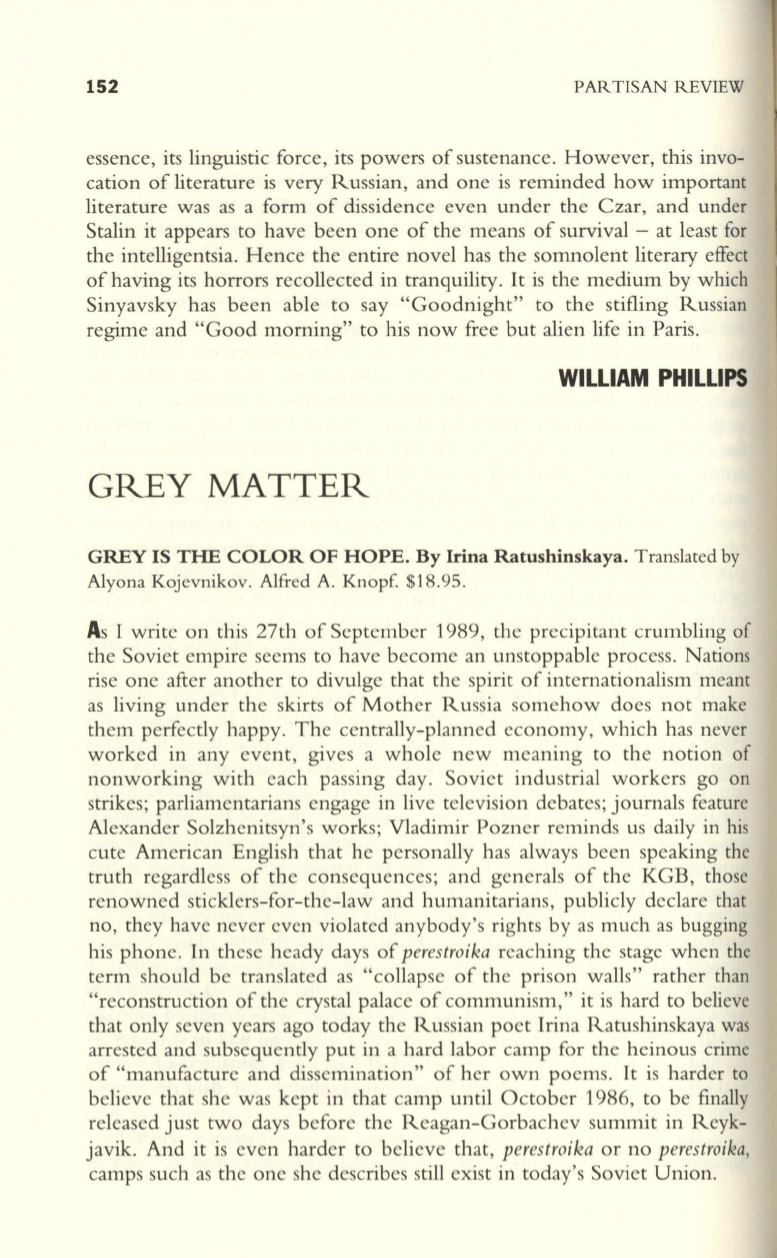
152
PARTISAN REVIEW
essence, its linguistic force, its powers of sustenance. However, this invo–
cation of literature is very Russian, and one is reminded how important
literature was as a form of dissidence even under the Czar, and under
Stalin it appears to have been one of the means of survival - at least for
the intelligentsia. Hence the entire novel has the somnolent literary effect
of having its horrors recollected in tranquility. It is the medium by which
Sinyavsky has been able to say "Goodnight" to the stifling Russian
regime and "Good morning" to his now free but alien life in Paris.
WILLIAM PHILLIPS
GREY MATTER
GREY IS THE
COLOR OF HOPE.
By Irina Ratushinskaya. Translated
by
Alyona Kojevnikov. Alfred A. Knopf $18.95.
As I write on this 27th of September 1989, the precipitant crumbling of
the Soviet empire seems to have become an unstoppable process. Nations
rise one after another to divulge that the spirit of internationalism meant
as living under the skirts of Mother Russia somehow does not make
them perfectly happy. The centrally-planned economy, which has never
worked in any event, gives a whole new meaning to the notion of
nonworking with each passing day. Soviet industrial workers go on
strikes; parliamentarians engage in live television debates; journals feature
Alexander Solzhenitsyn's works; Vladimir Pozner reminds us daily in his
cute American English that he personally has always been speaking the
truth regardless of the consequences; and generals of the KGB, those
renowned sticklers-for-the-Iaw and humanitarians, publicly declare that
no, they have never even violated anybody's rights by as much as bugging
his phone. In these heady days of
perestroika
reaching the stage when the
term should be translated as "collapse of the prison walls" rather than
"reconstruction of the crystal palace of communism," it is hard to believe
that only seven years ago today the Russian poet Irina Ratushinskaya was
arrested and subsequently put in a hard labor camp for the heinous crime
of "manufacture and dissemination" of her own poems. It is harder to
believe that she was kept in that camp until October 1986, to be finally
released just two days before the Reagan-Gorbachev summit in Reyk–
javik. And it is even harder to believe that,
perestroika
or no
perestroika,
camps such as the one she describes still exist in today's Soviet Union.


